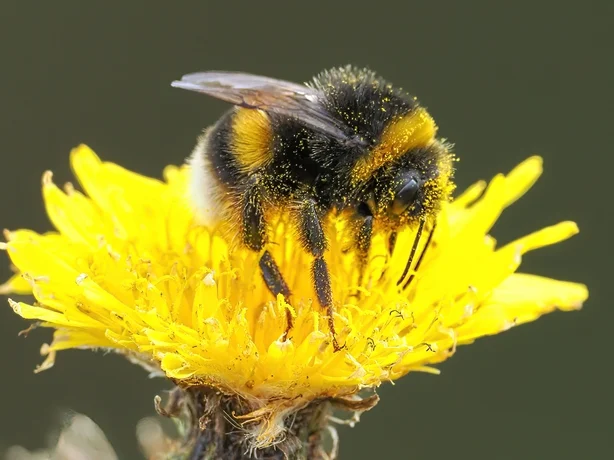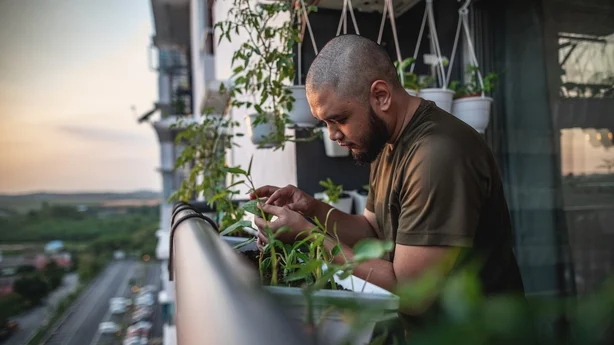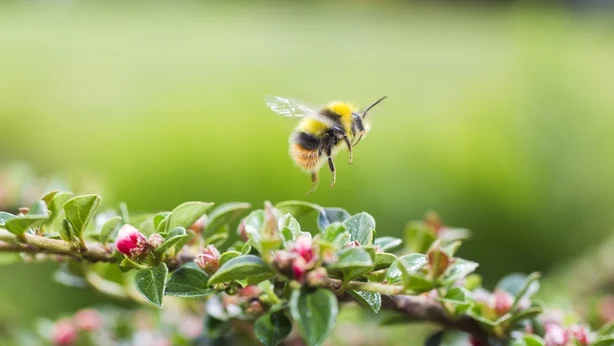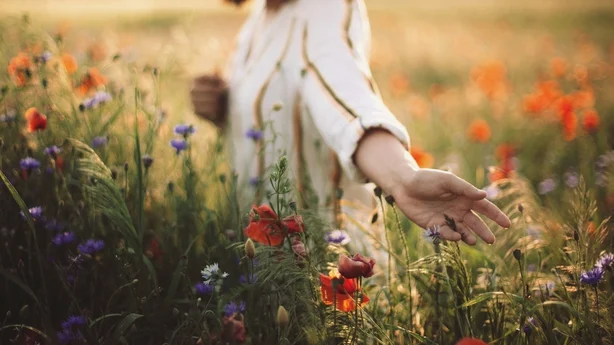As gardeners, we want to see as much beneficial wildlife in our outside space as possible – and bees provide us with not only the feelings of a healthy garden but also hope that we’ve more chance of a good harvest of edibles thanks to their presence.
On the run-up to World Bee Day (May 20), an initiative to raise awareness on the essential role bees and other pollinators play in keeping people and the planet healthy, there are a few simple things you can do to encourage them into your garden.
Plant bee-friendly flowers
Good planting is essential to get different types of bees into your garden. Honeybees, for example, have short tongues so are able to access flowers that are open such as those daisy-like types from the aster family, as well as, alliums, clovers and herbs including marjoram.
Bumblebees have longer tongues and like plants including foxgloves, honeysuckle, bluebells, borage, aquilegia and lavender.
Umbelliferous plants which have an umbrella with a mass of floral units with short flowers, including late-flowering sedum, Astrantia, different angelicas and Cenolophium denudatum are also a magnet for bees.

Think about what you plant in containers
If you’re going for brightly coloured bedding found in garden centres and DIY shops, like pelargonium, busy lizzies, pansies and petunias, you may not be doing much for your bees, as extensive selective breeding has resulted in some flowers losing nectar. You can make bee-friendly containers using many other plants.
There’s a Cosmos Apollo series with shorter stems which look great in containers, as do vibrant yellow dwarf rudbeckias, while single dahlias (which have flowers which are easier for bees to access than pom pom or ball varieties) also pack a colourful punch.
Herbs can also create an abundance of colour and fragrance which will be a magnet for bees. Lavender, borage, sage, thyme and rosemary provide pretty flowers, add flavour to your cooking and will keep bees happy.
Bulbs can also do their bit, so think ahead because you’ll need to plant the spring-flowering ones in autumn. Then, in late winter and early spring, bees will go mad for the early nectar and pollen from crocuses, winter aconites and irises, when much of the garden has yet to come to life.

Avoid double varieties
Go for single, open-flowered types such as daisy-like flowers, because with double varieties some of the pollen and nectar has been lost as more petals have been established.
Some plants which have been heavily hybridised to produce more blousy, bigger blooms have in the process made it impossible for bees to access the nectar or pollen, if indeed there is any pollen because some sterile hybrids don’t produce any.
Keep bees happy in autumn and winter
While ivy may be seen as a bugbear to some gardeners, it’s manna from heaven to bees, with its nectar-rich flowers in autumn. Single-flowered hellebores, with their pretty, nodding blooms, provide much needed nectar in winter, as do winter-flowering clematis, bright yellow scented mahonia flowers, and willows, whose catkins provide plenty of pollen for bees.

Leave some weeds
While many gardeners still dig out all visible weeds, there’s a growing movement to leaving some in the grass or flowerbed as a great source of pollen and nectar. Top nectar producers include dandelions and ragwort. Leaving clovers in lawns will also benefit bees.
Provide access to water
Whether you have a pond in your garden or a saucer on your balcony, make sure bees can get in and out of it easily, because they can’t swim and they will drown. Put some stones or pebbles in strategic positions so that they can easily access water and can exit it too.
Don’t use chemicals
Avoid chemicals at all costs, even if aphids are running amok. You can usually just squirt them off with soapy water or, wearing a pair of gloves, run your fingers down the stems where you see them to keep them at bay. Pesticides can be deadly for bees which are feeding on sprayed plants.

Consider a wild patch
The ‘rewilding’ debate continues, but if you have space, just leave a patch at the back of the garden to do its thing – weeds, wildflowers and long grass will all provide food and shelter for bees.
Provide shelter
Solitary bees need ideal nesting sites to lay eggs, and are attracted to holes in wood, so you could either buy a bee house or make your own from hollow bamboo canes tied with string and inserted into a secure frame. All the adults generally die off before winter comes, the females leaving their eggs sealed inside a nest in a cavity or burrow, provided with food stores of pollen and nectar.
Queen bumblebees hibernate underground in loose soil or banks of earth, burrowing into soft earth or under logs and stones to escape the frost. So don’t tidy up too much. Leave piles of twigs and branches where they are as easy shelters for hibernation.
Become a beekeeper
There’s a growing interest in beekeeping, but if you’re a beginner, seek advice to understand the safety and basic knowledge of beekeeping. You can do an online course or contact an association in your area. Visit The Federation of Irish Beekeepers Associations (FIBKA) at irishbeekeeping.ie for more information.
Disclaimer: The copyright of this article belongs to the original author. Reposting this article is solely for the purpose of information dissemination and does not constitute any investment advice. If there is any infringement, please contact us immediately. We will make corrections or deletions as necessary. Thank you.






